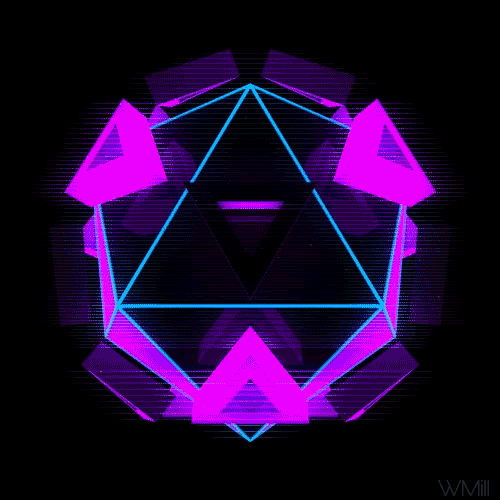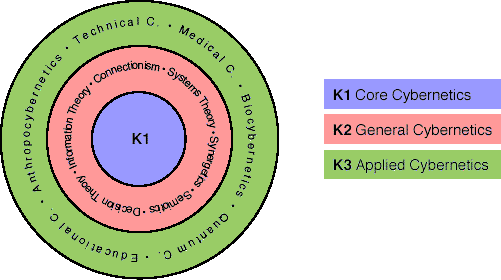Have you ever wondered what a thought might look like?




Cybernetics is a transdisciplinary approach for exploring regulatory systems, their structures, constraints, and possibilities. Cybernetics is relevant to the study of systems, such as mechanical, physical, biological, cognitive, and social systems. Cybernetics is applicable when a system being analyzed is involved in a closed signaling loop; that is, where action by the system generates some change in its environment and that change is reflected in that system in some manner (feedback) that triggers a system change, originally referred to as a "circular causal" relationship. Some say this is necessary to a cybernetic perspective. System dynamics, a related field, originated with applications of electrical engineering control theory to other kinds of simulation models, especially business systems, by Jay Forresterat MIT in the 1950s.
Concepts studied by cyberneticists include, but are not limited to: learning, cognition, adaptation, social control, emergence, communication, efficiency, efficacy, and connectivity. These concepts are studied by other subjects such as engineering and biology, but in cybernetics these are abstracted from the context of the individual organism or device.
Norbert Wiener defined cybernetics in 1948 as "the scientific study of control and communication in the animal and the machine."The word cybernetics comes Greek κυβερνητική (kybernetike), meaning "governance", i.e., all that are pertinent to κυβερνάω (kybernao), the latter meaning "to steer, navigate or govern", hence κυβέρνησις (kybernesis), meaning "government", is the government while κυβερνήτης (kybernetes) is the governor or the captain. Contemporary cybernetics began as an interdisciplinary study connecting the fields of control systems, electrical network theory, mechanical engineering, logic modeling, evolutionary biology, neuroscience, anthropology, and psychology in the 1940s, often attributed to the Macy Conferences. During the second half of the 20th century cybernetics evolved in ways that distinguish first-order cybernetics (about observed systems) from second-order cybernetics (about observing systems).More recently there is talk about a third-order cybernetics (doing in ways that embraces first and second-order).
Fields of study influenced or have been influenced by cybernetics include game theory, system theory (a mathematical counterpart to cybernetics), perceptual control theory, sociology, psychology (especially neuropsychology, behavioral psychology, cognitive psychology), philosophy, architecture, and organizational theory. Then again perhaps in theory it is as
Concepts studied by cyberneticists include, but are not limited to: learning, cognition, adaptation, social control, emergence, communication, efficiency, efficacy, and connectivity. These concepts are studied by other subjects such as engineering and biology, but in cybernetics these are abstracted from the context of the individual organism or device.
Norbert Wiener defined cybernetics in 1948 as "the scientific study of control and communication in the animal and the machine."The word cybernetics comes Greek κυβερνητική (kybernetike), meaning "governance", i.e., all that are pertinent to κυβερνάω (kybernao), the latter meaning "to steer, navigate or govern", hence κυβέρνησις (kybernesis), meaning "government", is the government while κυβερνήτης (kybernetes) is the governor or the captain. Contemporary cybernetics began as an interdisciplinary study connecting the fields of control systems, electrical network theory, mechanical engineering, logic modeling, evolutionary biology, neuroscience, anthropology, and psychology in the 1940s, often attributed to the Macy Conferences. During the second half of the 20th century cybernetics evolved in ways that distinguish first-order cybernetics (about observed systems) from second-order cybernetics (about observing systems).More recently there is talk about a third-order cybernetics (doing in ways that embraces first and second-order).
Fields of study influenced or have been influenced by cybernetics include game theory, system theory (a mathematical counterpart to cybernetics), perceptual control theory, sociology, psychology (especially neuropsychology, behavioral psychology, cognitive psychology), philosophy, architecture, and organizational theory. Then again perhaps in theory it is as


Atomic Thinking Unit
Figure One
Figure Two
